On the list of appliance shopping, fuel source might not be the most engaging consideration. Often, many buyers base their decision on what’s already in their home. We get it — the array of appliance finishes and brand features are exciting, but when it comes down to using a new appliance, fuel source will be a major factor toward overall satisfaction.
Whether you want to check your research or are looking to learn something new, we encourage you to know the difference between gas versus electric appliances before making your final decision. Get the facts here!
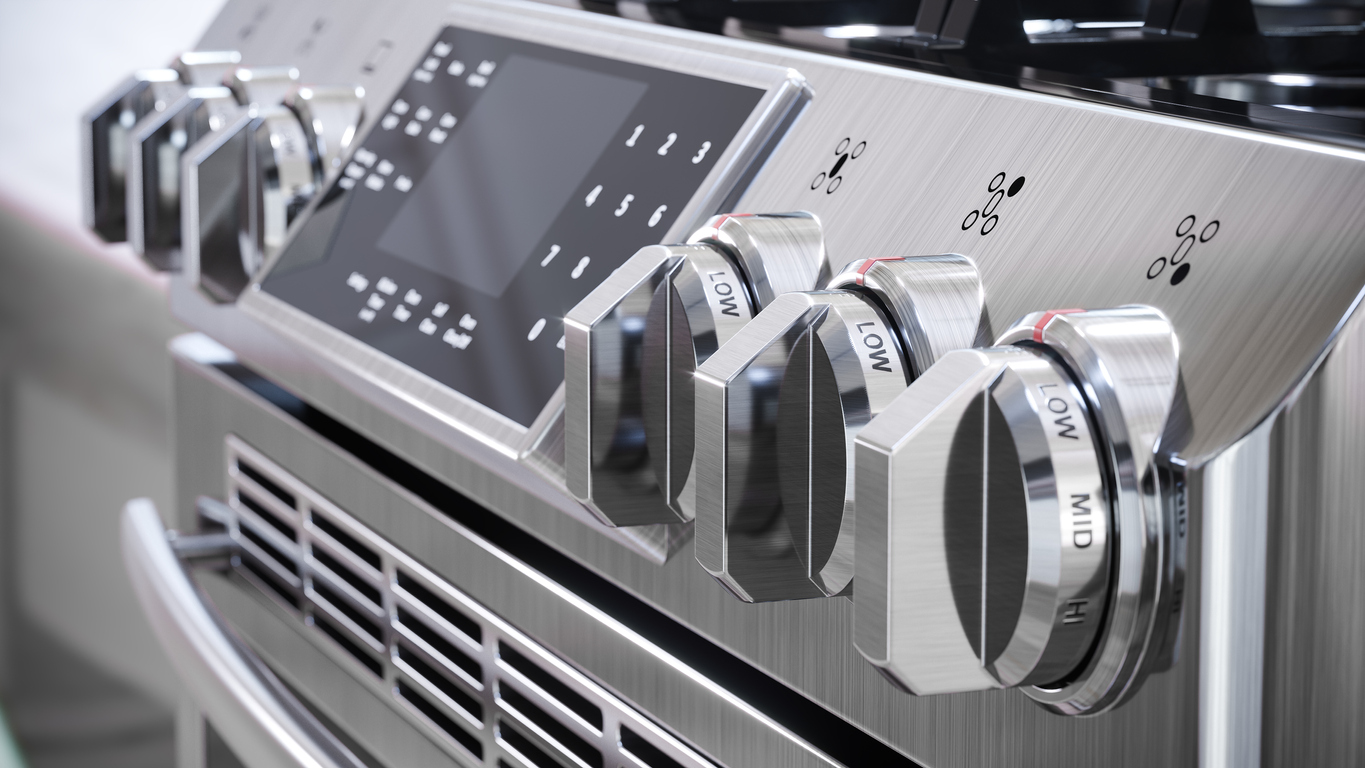
Gas or Electric: Which is Safer?
Rule number one: No matter if your choose gas-fuel or electric-powered appliances, neither are safe unless they’ve been properly installed and used correctly. With that said, let’s dive into how safe gas and electric appliances are.
Gas Fuel
The best way to safely operate a gas appliance is in a home with ample ventilation equipped with a working carbon monoxide detector. Carbon monoxide is clear, tasteless, and sometimes odorless (though most often, it’s laced with gases to provide a detectable smell). While professional installation can help prevent carbon monoxide leaks, old supply lines or corroded seals can cause CO gas to seep out.
To help contain accidental leaks, gas appliances like ranges, cooktops, and wall ovens often feature an emergency shut off feature that detects and stops gas escaping.
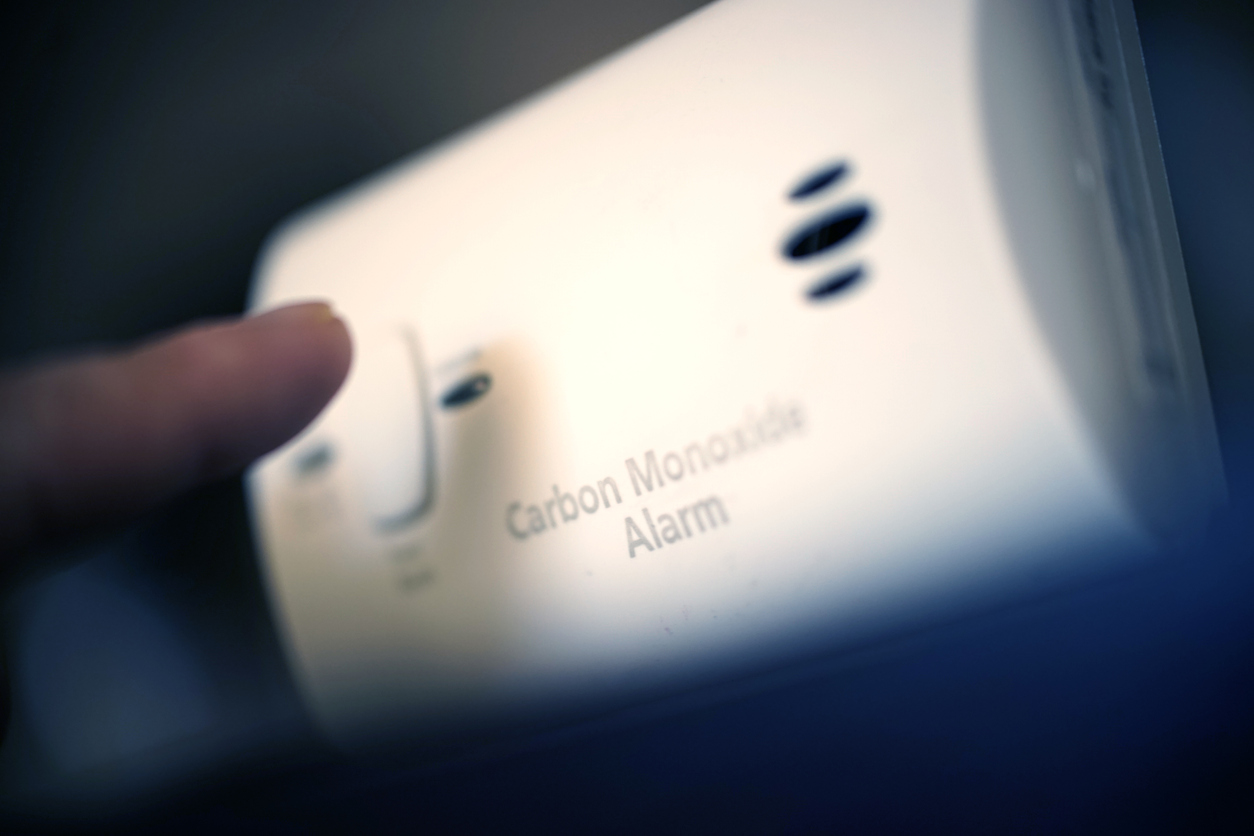
Electric-Powered
When it comes to safety, electric appliances are especially great because there’s no risk of gas poisoning and no live flame. However, the biggest safety concern is the risk of shock. While relatively uncommon, it’s important to regularly inspect outlets, cords, and connections for fraying or deterioration, which could expose electricity causing electric shock.
Gas or Electric: Which is More Affordable?
The price of an electric versus gas appliances comes down to two factors: operation and up-front cost. Overall, it’s balancing game with advantages and disadvantages on both sides, which will ultimately depend on your budget, lifestyle, and needs.
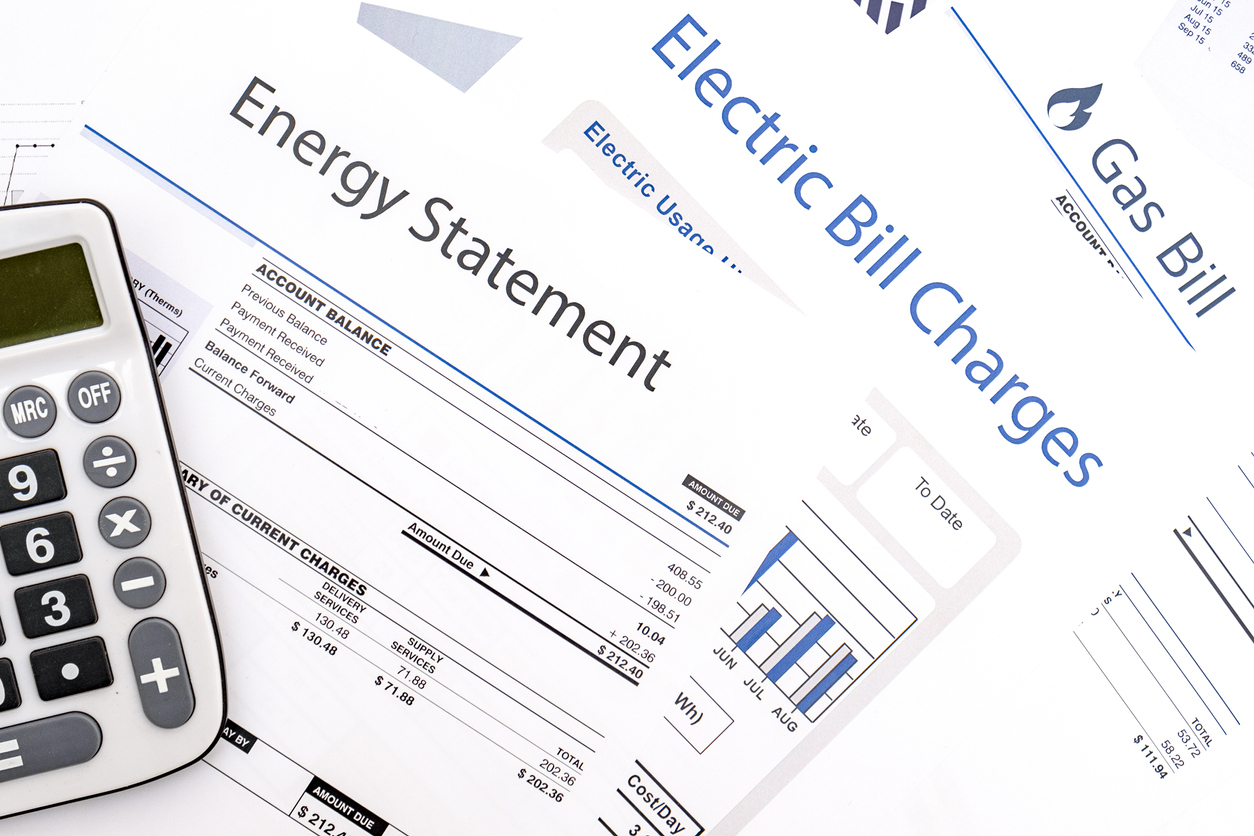
The Cost of Gas Appliances
While cost rates depend on location, gas tends to be a cheaper fuel source to run compared to electricity. However, the other side to this pro is that gas appliances are generally more expensive initially. So, while users might enjoy running a gas dryer or rangetop at cheap rates, they’re not always the best options for those working with a tight budget.
Additionally, gas appliances require a properly working supply line. Unless your home already has one installed, adding a gas supply to your home will add to the cost of a gas-fuel appliance.
The Cost of Electric Appliances
Put simply, the electricity used to fuel household appliances is a byproduct of natural gas production. That means it takes more work to generate electricity than it does gas. For this reason (among others, including state regulations and taxes), the cost of electricity will almost always be greater than gas.
Still, since homes largely depend on electricity, electric-powered appliances are more compatible with most households. So, while the cost of operation will be greater, the up-front cost of an electric appliance is typically more affordable than gas appliances.
Which is More Efficient?
In terms of energy transfer, gas has a slight edge over electricity. Again, this is due to production, since electricity first needs to be generated before being sent to your home, whereas natural gas is ready-to-use.
On the other hand, only electric appliances can be Energy Star certified, which not only maximizes energy efficiency, but also keeps the cost of operation down.
Gas vs. Electric Cooking Appliances
The debate over gas and electric cooking has long been an open discussion between those who love the traditional appeal of gas-fired cooking versus the modern approach of electricity. In the end, the decision comes down to your cooking needs.
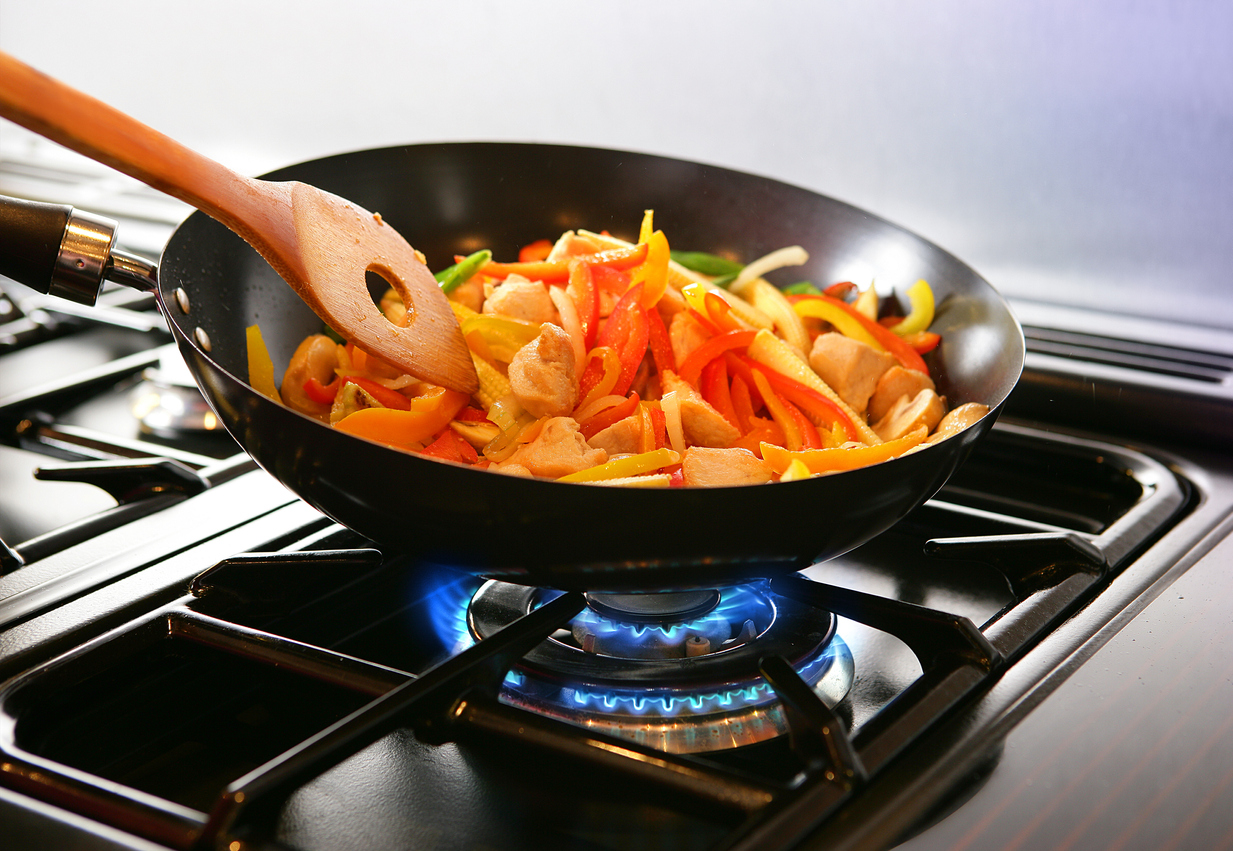
Gas Cooking Appliances
If you ask pro chefs and at-home gourmet aficionados, chances are they will say gas cooktops, ranges, and rangetops are better than electric. That’s because the live flame is easy to manage, intuitive to gauge, and requires no pre-heating. This lends itself to agile heat response that doesn’t require much thought.
However, this isn’t necessarily true for all gas-powered appliances, like ovens. While some prefer the “wet heat” of gas ovens, others feel the moist cooking conditions are only good for meats and vegetables, but not regular baked items such as cookies, cakes, or souffles.
Additionally, gas ovens are not capable of convection cooking unless they are able to convert to electricity, too.
Electric Cooking Appliances
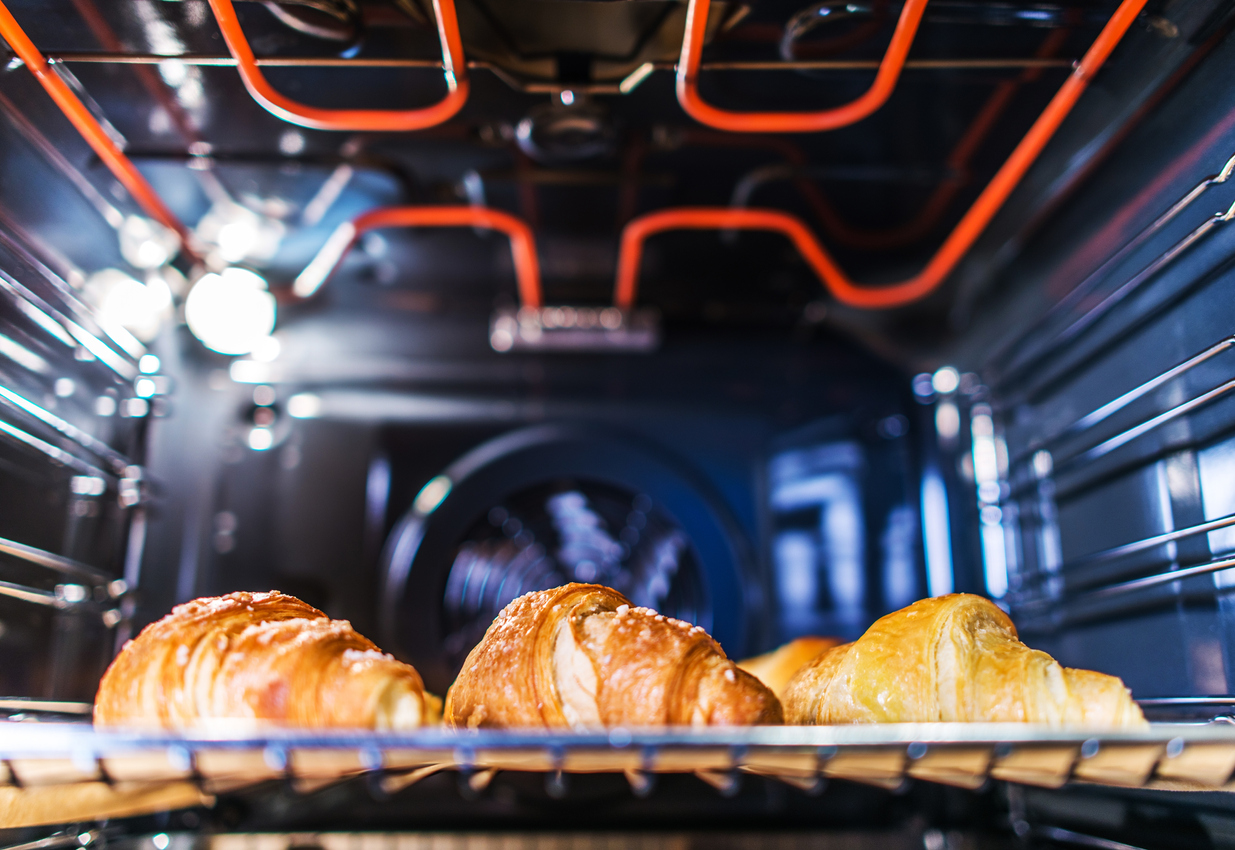
Instead, the consistent and even heat supply of electricity is the winner when it comes to baking pastries and desserts, and the ability use convection heat provides even more oven cooking versatility.
However, when it comes to ranges, rangetops, and cooktops, the results vary from one appliance to the next. Take the following points into consideration:
- Radiant electric cooking appliances are affordable, but require pre-heating, have slow heat response, and residual heat after shutting off can be dangerous.
- Induction electric cooking appliances are precise, sleek, and rapid, but typically fall on the higher end of cost.
*For information about dual fuel cooking appliances, check out our blog on top ranges for 2021.
Gas vs. Electric Laundry Appliances
Although gas washers were once a thing, since the introduction of high-efficiency washing machines, they’ve practically gone extinct (and we think for the better!). Therefore, the question becomes, “Gas or electric dryer?”
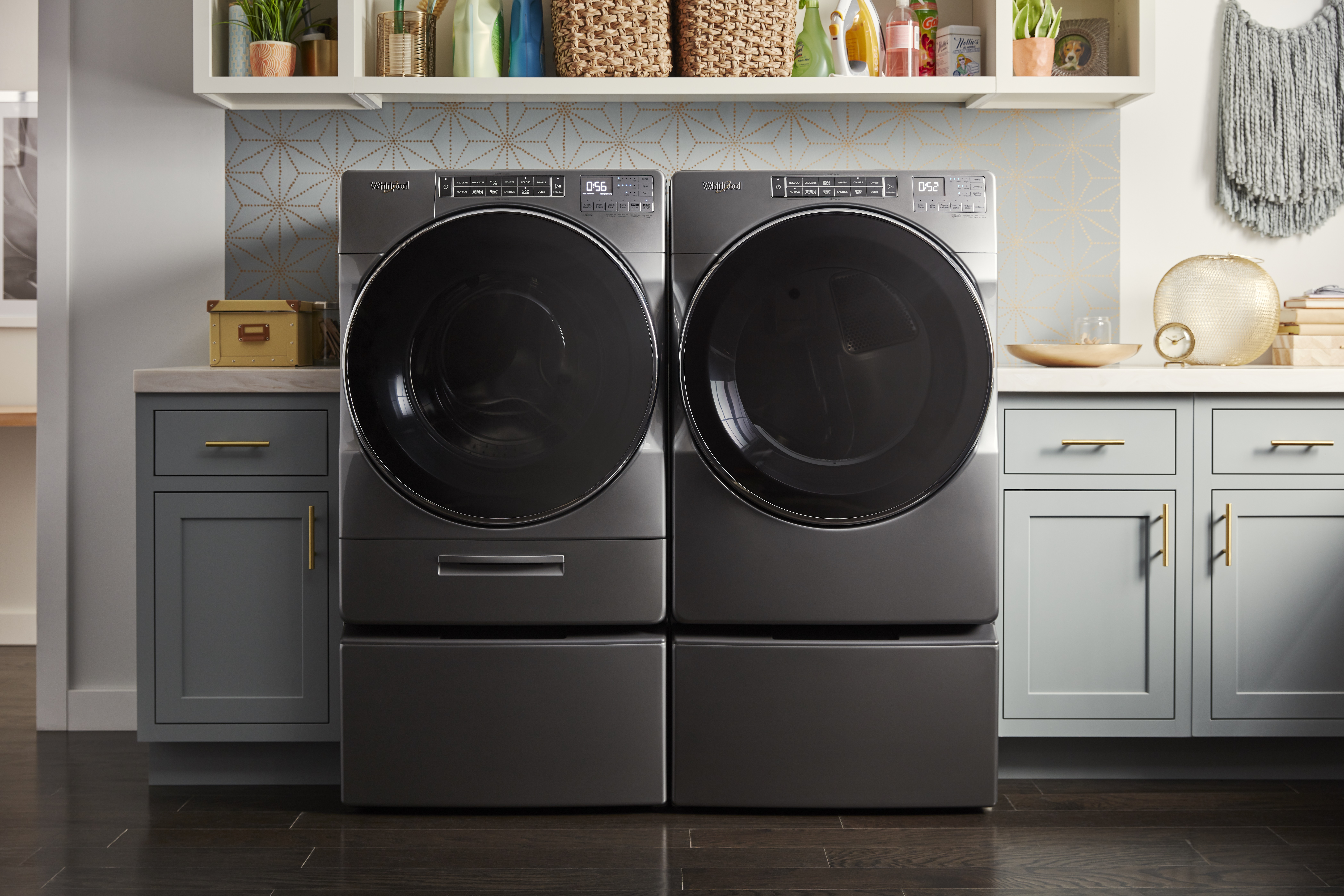
Gas Dryers
As you might’ve guessed based off the info above, gas dryers tend to be more expensive, but because they’re powered by gas, they cost less to operate. In fact, because gas dryers heat air hotter than electric dryers, the dry times are faster, reducing energy use up to 30 percent! That not only looks good on your utility bill; shorter drying times also means clothes are subject to less wear from heat.
But remember, this all depends on whether your home has a working gas supply, or if converting your home’s electric supply to gas fits within your budget.
Electric Dryers
That being said, electric dryers are still a great option. On top of being more affordable than gas dryers, they can also be installed without professional help, while with gas-fuel dryers, it’s generally recommended.
Note: Homes built before 2000 probably use a 3-prong outlet, whereas home built after 2000 use a safer 4-prong dryer outlet. Swapping each to accommodate your home can easily be done by an expert and is relatively inexpensive.
The Best Choice is Friedmans
At Friedmans Appliance, we understand your desire to make smart, researched choices because that’s what we do, too! If you’re still unsure whether to go gas or electric, our team of experts can help you make a decision you’ll feel confident about. Shop online, in-store, or call us at 925-808-2950 today!

